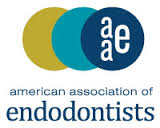Whether you’re young or old, cavities always pose a risk to your smile. Without treatment, minor decay can soon lead to more serious oral health concerns, even threatening the stability of the tooth in question. How do you prevent cavities? Fortunately, there are preventive measures you and your dentist can take to help safeguard your smile against tooth decay.
Try Our Cavity Prevention Quiz
- True or False: Toothaches may be a warning sign.
- True or False: Decay may eventually lead to an infection.
- True or False: You can take steps from home to prevent cavities.
- True or False: A dental cleaning can reduce the risk of tooth decay.
Answer Key
- True. Often, a patient may notice his/her teeth feel sensitive to hot or cold temperatures, or that a persistent toothache develops that doesn’t subside. If you experience discomfort, see your dentist. The doctor can look for signs of decay and recommend the necessary treatment to address your discomfort.
- True. Without treatment, tooth decay will continue to spread until it reaches the inner pulp, causing a painful infection. We will need to address the infection in a timely manner to prevent the spread of infection to surrounding teeth.
- True. First, you should always brush your teeth in the morning and again before going to bed. You also need to floss your teeth every night before bed. Brushing and flossing remove food particles and prevent bacteria from breaking the particles down and coating the teeth in plaque buildup. We also suggest drinking water in lieu of sodas, energy drinks, or sports drinks. You should also cut back on foods high in sugar and other starches.
- True. A cleaning removes plaque buildup. Otherwise, plaque can increase oral acidity and weaken tooth enamel increasing the risk of cavities. During your visit we will also examine your smile. An exam allows us to identify decay in the earliest stages, often before you experience discomfort.










